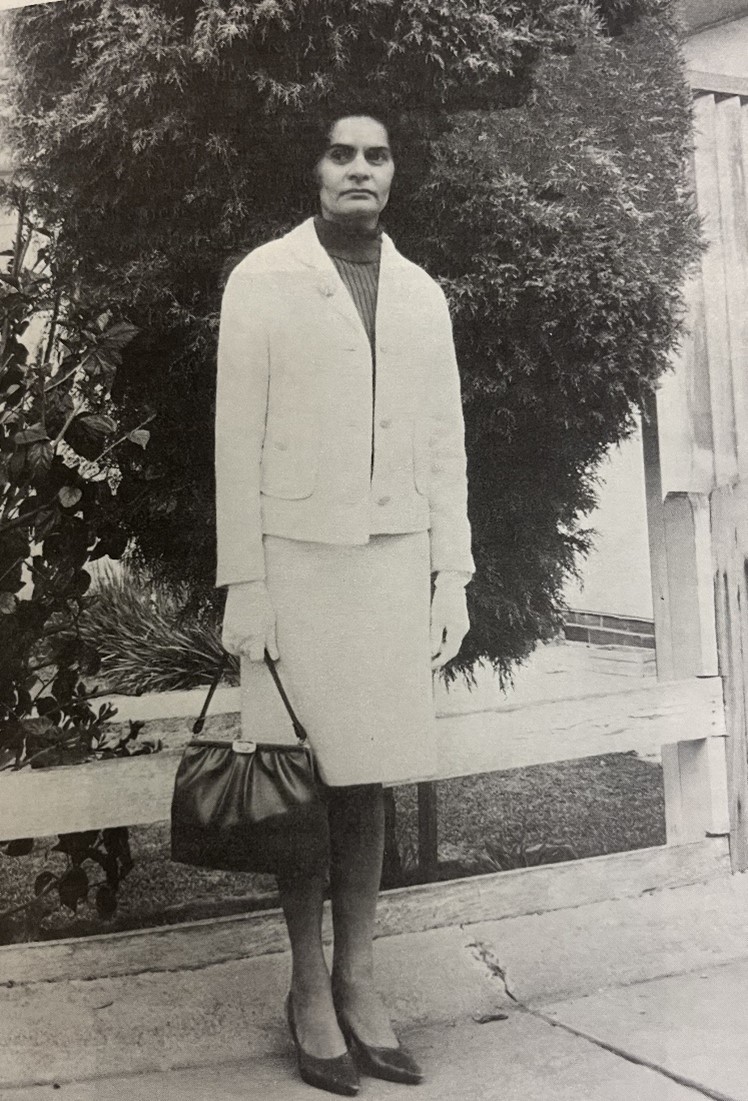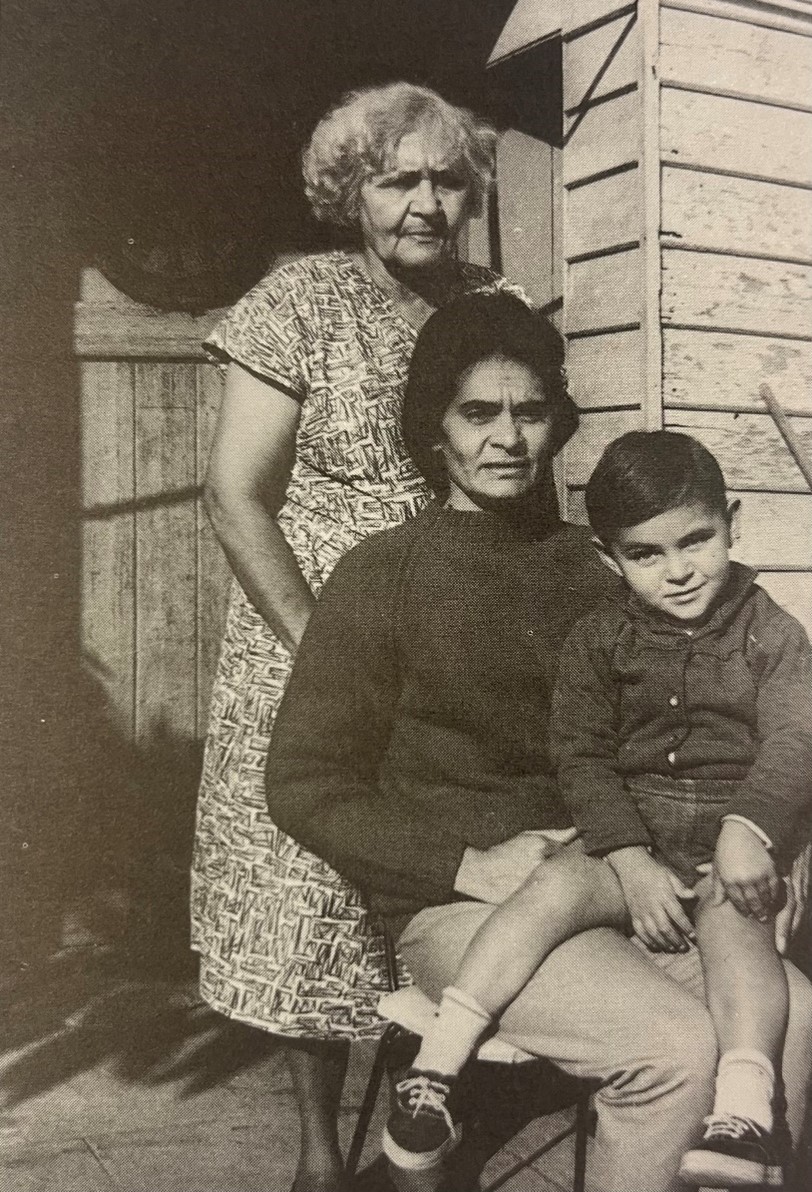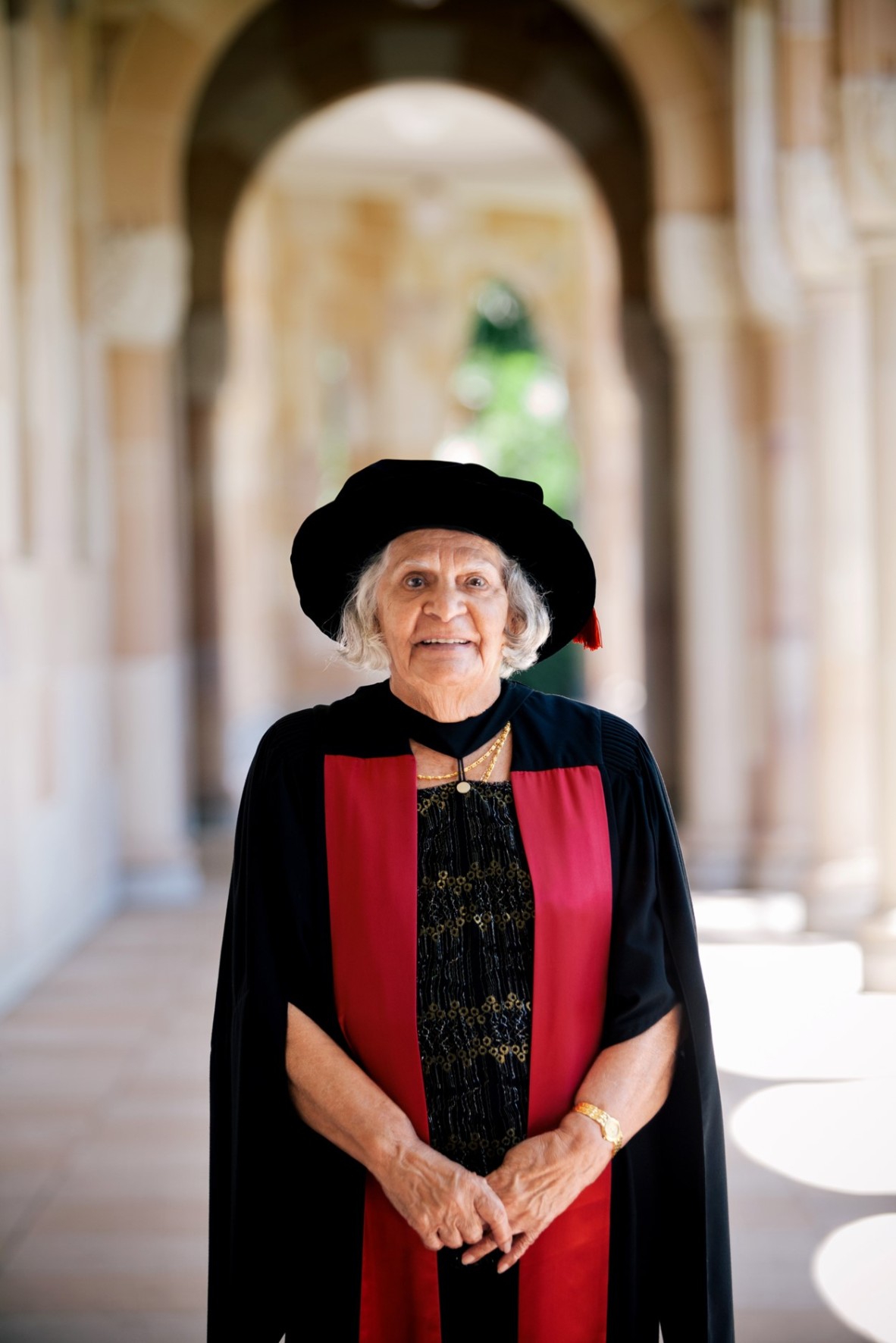Pearl Duncan: the first tertiary trained Aboriginal teacher in Australia
By Keeley Young, A/Venues Liaison Officer, Venues | 6 May 2024
“How do I write about my life without appearing to be egotistical” is how Pearl Duncan began her contribution to Fighters & Singers: the lives of some Aboriginal women (1985, p. 40). Pearl was my great aunt, and in my opinion, she had every right to be egotistical. Pearl was a Gamilaraay woman, and the first tertiary trained Aboriginal teacher in Australia. For countless years, she was a fortifying voice for First Nation peoples in education and academia. She was recognised as a ‘Queensland Great’ in 2008 and she is the namesake for several tertiary education scholarships across Queensland. When I started working at State Library of Queensland in 2021, I was glad to find that many of her academic contributions sit close by in the collections.

Pearl in her teaching days, Duncan Collections
“I sometimes get the feeling that there was an uncanny intervention in my life and that it followed a predetermined path. My life was influenced from the start by people of strong character right down through the generations.” (Duncan, 1985, p. 40) Pearl attended school in Bundarra, and during this time was supported by her Aunt Min and her aunt’s husband while her mother, her guiding star, worked and saved in Emmaville. Her Aunt Min was boundlessly selfless, and Pearl lamented that she “died unaware that the winds of change were sweeping the continent” (Duncan, 1985, p. 41). Pearl and her siblings were the only Aboriginal children at Bundarra Central School and she recounted both the pleasures and the hardships of this childhood.
Her teaching career began in 1951, after completing her time at Sydney’s Teachers College. Her first posting was a mission school in Yarrabah, Northern Queensland. In her writing she notes the beauty of Yarrabah and the potential it could have offered for an idyllic life; however her school was run by a headmistress who subjected Pearl and the children to harassment and embarrassment. “My humiliating experiences only sharpened my wits and perception and gave me courage to face life fairly and squarely.” (Duncan, 1985, p. 46)

Pearl, her mother and son, Duncan Collections
From there, Pearl worked prolifically in the education sector. For three years she ran an entire school on Moa Island in the Torres Strait, and worked in several institutions across Queensland and New South Wales. In the early-1970s, she worked for a time in Auckland, Aotearoa (New Zealand). In Fighters and Singers I found it notable that she remembered (with amazement), the host of Māori teachers and the respect shown in the teaching of Māori culture. It provided a stark contrast to the dominant sentiment towards First Nation peoples in Australia at the time.
My dad always cherished Pearl and her husband John. After sitting down and reading Pearl’s work from State Library's collections, he was introduced to many unknown aspects of his aunt's life. Pearl’s work has now passed through the hands of our whole family, and we’ve all enjoyed the opportunity to get to know her as an academic.
In 2018 Pearl completed her PHD, which examines the role of humour in cultural resistance. This is fitting as all my memories of Pearl are punctuated by her humour and quick wit. She was never one to shy away from a dinner table debate and was similarly willing to educate. She was surprised and happy to learn that her work was available here at State Library. It’s been a great reminder of the power in preserving the work of our local community.

Pearl Duncan in graduation robes, Courtesy of University of Queensland
Pearl passed away in July of 2022, and we said goodbye on Yirin country (Bribie Island) the traditional lands of the Kabi Kabi and Joondoburri peoples and the place she had called home for years.
Her life was extremely colourful, and the stories she told and those she’s preserved in writing are as spirited as she. Those stories belong to her and I encourage you to read her work - no recount of mine could do them justice.
Pearl’s journal articles Next Time you get the Fruit and British Justice are available through State Library’s online catalogue. With State Library membership you can also access Pearl’s PHD via our online catalogue entitled The Role of Aboriginal humour in Cultural Survival & Resistance. On our shelves you’ll find the anthology Fighters & Singers: the Lives of Some Aboriginal Women, which includes Pearl’s work and the contributions of 6 other incredible Aboriginal and/or Torres Strait Islander women.
More information
Library membership – https://www.slq.qld.gov.au/services/membership
One Search catalogue – https://onesearch.slq.qld.gov.au
Ask a librarian - https://www.slq.qld.gov.au/services/ask-librarian
Comments
Your email address will not be published.
We welcome relevant, respectful comments.